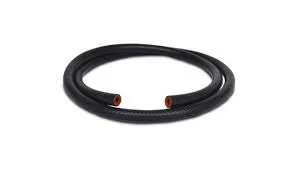fuel tube
ডিসে. . 12, 2024 05:47 Back to list
fuel tube
Understanding Fuel Tubes Essential Components for Efficient Fuel Delivery
Fuel tubes are a critical component in various machinery, ranging from automobiles to airplanes, ensuring that fuel is delivered efficiently from the storage tank to the engine. These tubes play a vital role in the overall performance and efficiency of fuel systems. In this article, we will explore the significance of fuel tubes, their construction, types, and maintenance considerations.
At the most basic level, fuel tubes function as conduits through which fuel flows. They are typically made from materials that can withstand high pressure and temperature, such as rubber, plastic, or metal. The design and material selection are crucial because they must prevent fuel leaks and resist corrosion caused by aggressive fuel formulations. Modern advancements in technology have led to the development of specialized fuel tubes that offer enhanced durability and efficiency.
There are several types of fuel tubes found in different applications. In automotive engines, for instance, fuel injection systems utilize high-pressure fuel tubes to ensure a precise and rapid delivery of fuel. These tubes are designed to handle the extreme conditions created by the engine’s operation. In contrast, aviation fuel tubes must meet rigorous safety standards due to the high stakes involved in air travel. These tubes often undergo extensive testing to ensure they can withstand the harsh environments and pressures encountered at cruising altitudes.
The importance of fuel tubes goes beyond merely transporting fuel. They are integral to the overall efficiency of the fuel system. A well-designed fuel tube can enhance fuel atomization, which leads to better combustion and, ultimately, improved engine performance. Conversely, a damaged or poorly constructed fuel tube can result in fuel leaks, reduced power output, and increased emissions. Such issues not only affect the vehicle's performance but can also pose significant safety hazards.
fuel tube

Regular maintenance of fuel tubes is crucial for ensuring optimal performance. Many vehicle manufacturers recommend periodic inspections of the fuel system, including the fuel tubes, to check for signs of wear, leaks, or damage. Rubber tubing, for example, can degrade over time due to exposure to heat and fuel additives. Identifying and replacing worn-out fuel tubes can prevent more serious problems down the line, such as engine failure or fuel fires.
In addition to routine inspections, vehicle owners should also be mindful of how different fuels can affect their fuel tubes. The introduction of alternative fuels, such as biofuels or ethanol blends, has raised concerns about compatibility with traditional fuel system components. It's essential to ensure that the chosen fuel aligns with the materials used in the fuel tubes and other system components to prevent deterioration and failures.
As the world moves towards more sustainable energy solutions, the role of fuel tubes is evolving. Innovations in materials science are leading to the development of fuel tubes that can handle new fuel types while minimizing environmental impact. Additionally, as electric vehicles become more prevalent, the focus on fuel delivery systems is shifting. However, for the foreseeable future, fuel tubes remain a crucial component in combustion engines and will continue to be an area of focus for manufacturers looking to enhance performance and safety.
In conclusion, fuel tubes are more than just simple conduits for fuel. They are essential components that contribute to the overall efficiency, safety, and performance of fuel systems in various applications. Understanding their role, types, and maintenance considerations is vital for anyone interested in the machinery that drives our modern world. Whether you are an automotive enthusiast or a professional in the field, recognizing the significance of fuel tubes can lead to better care and performance of fuel systems. As technology progresses, the evolution of these components will continue to shape the future of fuel delivery and energy efficiency.
